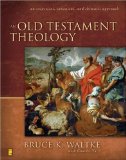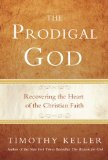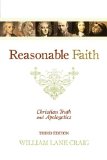If being thought generous is more important than being generous, if gaining a reputation for prayerfulness is more important to us than praying when no one but God is listening, if fasting is something in which we engage only if we can disingenuously talk about it, then these acts of piety become acts of impiety.
The fundamental way to check out how sound we are in each of these areas is to perform these acts so quietly that none but God knows we are doing them.
Archive for the ‘Matthew’ Category
When Piety Becomes Impiety
Posted in Matthew, Sermon on the Mount, tagged D A Carson, Matthew 6, Sermon on the Mount on Tuesday, January 8, 2013| 2 Comments »
The Angel’s Easter Sermon
Posted in Matthew, tagged Easter, Matthew 28 on Sunday, April 24, 2011| Leave a Comment »
The Starting Point of Missions
Posted in Matthew, Missions, tagged Great Commission on Wednesday, July 1, 2009| Leave a Comment »
Then Jesus came to them and said, “All authority in heaven and on earth has been given to me. Therefore go and make disciples of all nations, baptizing them in the name of the Father and of the Son and of the Holy Spirit, and teaching them to obey everything I have commanded you. And surely I am with you always, to the very end of the age.” (Mt. 28:18-20)
In the wake of the short term trip from which I returned a few days ago, I could not help but think of the Great Commission in Matthew 28:18-20. No doubt, this passage has been the center of many sermons on missions, and for good reason. On a mount in Galilee, the risen Christ offers a few sentences to His disciples that close Matthew’s gospel. Last words were no small thing for Matthew’s audience, so their importance is doubly highlighted. As such, these three verses remain a centerpiece of discussions today about the spread of the Gospel of Christ.
Whenever I consider this passage, my focus tends to land on verses 19 and 20. After all, herein lies the meat of the command. Here is what we’re supposed to do (make disciples), how we’re supposed to do it (going, baptizing, teaching), and to whom (all nations). However, as I reflect more on the passage as a whole, I am increasingly struck by verse 18. I believe the importance of this verse cannot be overstated, and what follows hangs on the truth therein.
Verse 18 is an undeniably strong affirmation of Christ’s Lordship over the universe. Our obedience to the command in verses 19 and 20 is predicated on Christ’s authority. This theme runs throughout the canon of Scripture. God’s being precedes our doing. The work of reconciliation, of redeeming fallen creation, is always at His initiative, not ours.
We see this pattern emerge in the first chapter of Genesis. When God speaks all creation into existence, out of nothing, entirely on His own, He firmly establishes His complete, unchallenged Lordship over everything that is. When humankind is spoken into the picture, our very existence is defined in terms of God. We are created in God’s image (Gen. 1:27). We know who God is before we know who we are. Conversely, we cannot properly know who we are until we know who God is. Good anthropology flows from good theology.
When sin enters the world a few chapters later, it is God who begins His work of redemption. God is the one who initiates with Abram, and chooses a people for Himself, through whom He reveals Himself, and blesses all nations. God is the one who gets hold of Moses and frees Israel for His glory. Chapter by chapter, book by book, we see God as the one at work in revealing Himself, and affecting His redemptive plan for humankind. From anointing judges to ordaining kings to appointing prophets, it all starts with God.
When God becomes man in Christ, He brings His reconciling work to an entirely new level. Christ in turn charges His disciples to continue in His work: “As the Father has sent me, so I am sending you” (Jn. 20:21). The order is clear once again: The Father sends Jesus first (v.21a), then we are sent by Him (v.21b). God is the starting point in both clauses.
Also, lest we forget, the latter half of verse 20 in our Great Commission passage reminds us that God has in no way stopped His work, and simply passed the Heavenly baton to us. No, Christ is with us “to the very end of the age.” Indeed, even a casual reading of Acts indicates that the book is much less about the “Acts” of the Apostles, than the “Acts” of the Holy Spirit. God didn’t quit after the Ascension and leave the rest up to us. Quite contrary, He’s dialed it up a notch or two.
When we arrive at the missionary scene, then, God has already been long at work. Stories upon stories from the mission field testify to this. A missionary meets a Muslim man who had a dream about Jesus the night prior; a woman feels an emptiness in her heart that longs to be filled; a teenager finds a Bible, and questions of God burn on his heart. Salvation always comes through God’s prior work, never by our clever words, strategies, or programs. After all, it is the Holy Spirit who testifies about Christ, and convicts the world of sin (Jn. 15:26; 16:8-11).
In this way missions is best understood as joining in God’s Mission. It is by His authority, His initiative, and His Mission that we make disciples of all nations. This is our starting point for missions. Missions is the project of aligning ourselves with God’s Mission, which is already well under way, and firmly in His capable hands. As such, we labor with confidence, knowing the certainty of the outcome, because it is God’s undertaking, not ours. Praise be to God that we are asked to be a part of His great work!
What Do We Pray For? A Look at the Sermon on the Mount
Posted in Jesus, Matthew, prayer, tagged context is king, prayer, Sermon on the Mount on Tuesday, February 3, 2009| 4 Comments »
Prayer is a rather large topic, one I’ve intentionally avoided writing about simply because there’s so much to say. How in the world do you narrow down the Bible’s teachings on prayer into one post? Or even a few posts? That’s a lot to ask. But last year as I was teaching on the Sermon on the Mount at church, I realized that I could at least narrow it down to cover this particular section of Jesus’ teachings.
In Matthew 7:7-11, we read these words of Jesus (TNIV):
“Ask and it will be given to you; seek and you will find; knock and the door will be opened to you. For everyone who asks receives; those who seek find; and to those who knock, the door will be opened.
Which of you, if your son asks for bread, will give him a stone? Or if he asks for a fish, will give him a snake? If you, then, though you are evil, know how to give good gifts to your children, how much more will your Father in heaven give good fits to those who ask him!”
I’ve often heard these words used by those in the “prosperity gospel” sector of the church to claim that we can pray for financial blessings and expect that God will grant us our requests. After all, He loves to give good gifts!
However, when you look at these words in light of what precedes it in the Sermon, you’ll find that what we are expected to pray for is narrowed a bit more than many realize.
Consider Jesus’ words in 6:25-34. Here, Jesus instructs us not to concern ourselves with food and clothing, God will provide those as He sees fit. In fact, worrying about these things is in line with the pagans, “for the pagans run after all these things…” (v32). Instead, we are instructed to “seek first his kingdom and his righteousness” (v33).
Immediately preceding these words, Jesus instructs us not to “store up for yourselves treasures on earth” (v19). I would think this would directly contradict the idea of praying for wealth. And you can’t take “treasures” to be solely metaphorical, since Jesus in v24 goes on to say that you can only serve God or Money, not both.
In the “Lord’s Prayer” (v9-13), we see the type of physical need that we are to pray for. In v11, we’re encouraged to pray, “Give us today our daily bread.” Instead of praying for riches, and all the comforts that come with it, we’re instructed to pray for enough to get through today. This is a call to trust God to provide us with what we need, not necessarily what makes us comfortable and at ease.
But you’ll also notice an alternative focus that is given here, praying for God’s name to be hallowed (the NET Bible translates it “may your name be honored”) and for His kingdom to come here on earth. Rather than riches, or even a “comfortable living”, we are to pray for God’s kingdom to be made manifest on this earth.
So, notice the juxtaposition throughout chapter 6 on what our focus is to be.
1. Pray only for enough “bread” to get through the day. Pray for God’s kingdom to come to earth.
2. Do not store up treasures on earth, because it will one day be destroyed. Instead, have a mindset that seeks to serve God, rather than Money.
3. Do not worry about food and clothing, because providing those is God’s job. Instead, we are to seek the kingdom of heaven and the righteousness of God.
So, when we reach Jesus’ words in 7:7-11, given above, we ought to have it in our minds already that Jesus isn’t talking about money and the luxuries this world offers. The “good gifts” we are to seek can hardly be said to be wealth, fame, etc. He just spent most of chapter 6 telling us not to seek those things!
So what are we to pray for? How about that God’s righteousness and justice be revealed? How about for His Name to be honored in all that we do? How about praying for enough to get through the day, so we can have the strength and resources necessary to live these things out? Even stepping back a chapter earlier, how about we pray for our enemies and for those who persecute God’s people (5:44)?
There is, of course, so much more to be said about prayer, even within the Sermon on the Mount, but I hope this quick look gives us some perspective as we pray. We cannot forget Jesus’ words in chapter 6 when we reach His words in chapter 7. Jesus had already laid out limits for His followers in terms of their focus, and had already demonstrated the proper way to pray. When we keep that context in mind, we should find it intolerable to misuse His words in Matthew 7:7-11.










